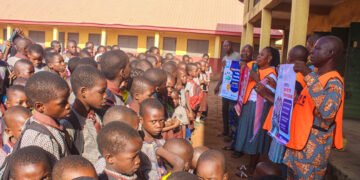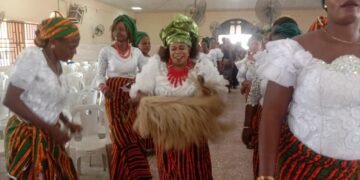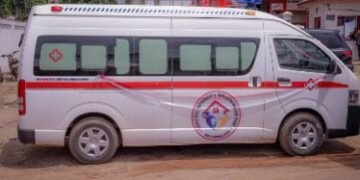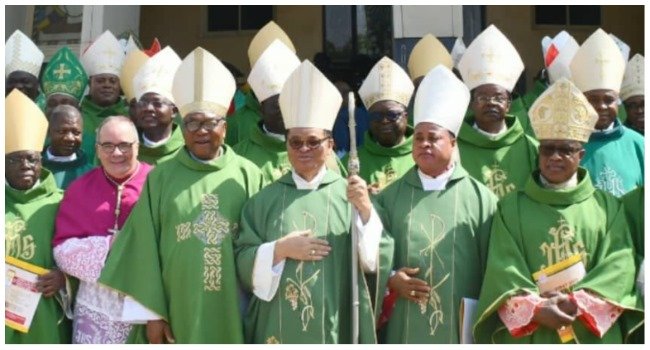By Charles Igwe
The Catholic Bishops Conference of Nigeria, through its non-governmental organization, Caritas Nigeria, has taken significant steps to reduce poverty in the country by empowering 700 individuals in Ekiti State with vocational skills and essential tools. This initiative, aimed at fostering self-dependence, saw the training and equipping of artisans in various vocations, including cosmetology, barbing, hairdressing, tailoring, catering, phone repair, and carpentry.
Over two days, Caritas Nigeria held graduation ceremonies in Orun Ekiti and Iluomoba Ekiti, both in Ekiti State, where kits were presented to 350 trainees at each location. The efforts are part of the organization’s broader project titled “Building Sustainable Livelihood in Vibrant Communities,” which seeks to invest in the future of individuals, communities, and the nation. The Catholic Bishop of Ekiti Diocese, Most Rev. Felix Ajakaye, emphasized the importance of self-reliance during the ceremonies. Represented by Rev. Father Francis Alade, the bishop stated, “This is not a palliative. What Caritas has given the graduate trainees is to aid them. It is part of efforts to reduce poverty in society. Many are jobless and complain about bad governance, but they don’t think of what they can do for themselves. The government cannot do everything. In our little ways, we should look inward and see what we can do. If help comes, it will be a plus.” Bishop Ajakaye encouraged the beneficiaries to fully utilize their newly acquired skills and equipment to improve their lives and urged them to train others, thereby contributing to the betterment of society.
Senior Advisor on Humanitarian Services at Caritas Nigeria, Mr. Friday Alhassan, highlighted the broader impact of the initiative. He explained that the program, supported by the Conrad Hilton Foundation, targets 21,000 vulnerable beneficiaries in 4,000 households across Ekiti and Lagos states. The project aims to build capacity in climate-smart agricultural practices, animal husbandry, vocational skills, financial inclusion, and market access to foster sustainable household incomes and community resilience. The Ajagun of Iluomoba, Oba Olubenga Jimoh, also urged the beneficiaries to make judicious use of the kits provided and discouraged them from selling the tools. Beneficiaries such as Nifemi Agbanigo, Ayomide Adeyeye, Ajayi Oluwaseun, and Oke Oluwafemi expressed their gratitude, noting how the initiative has enabled them to fulfill their dreams of acquiring vocational skills and tools.











































